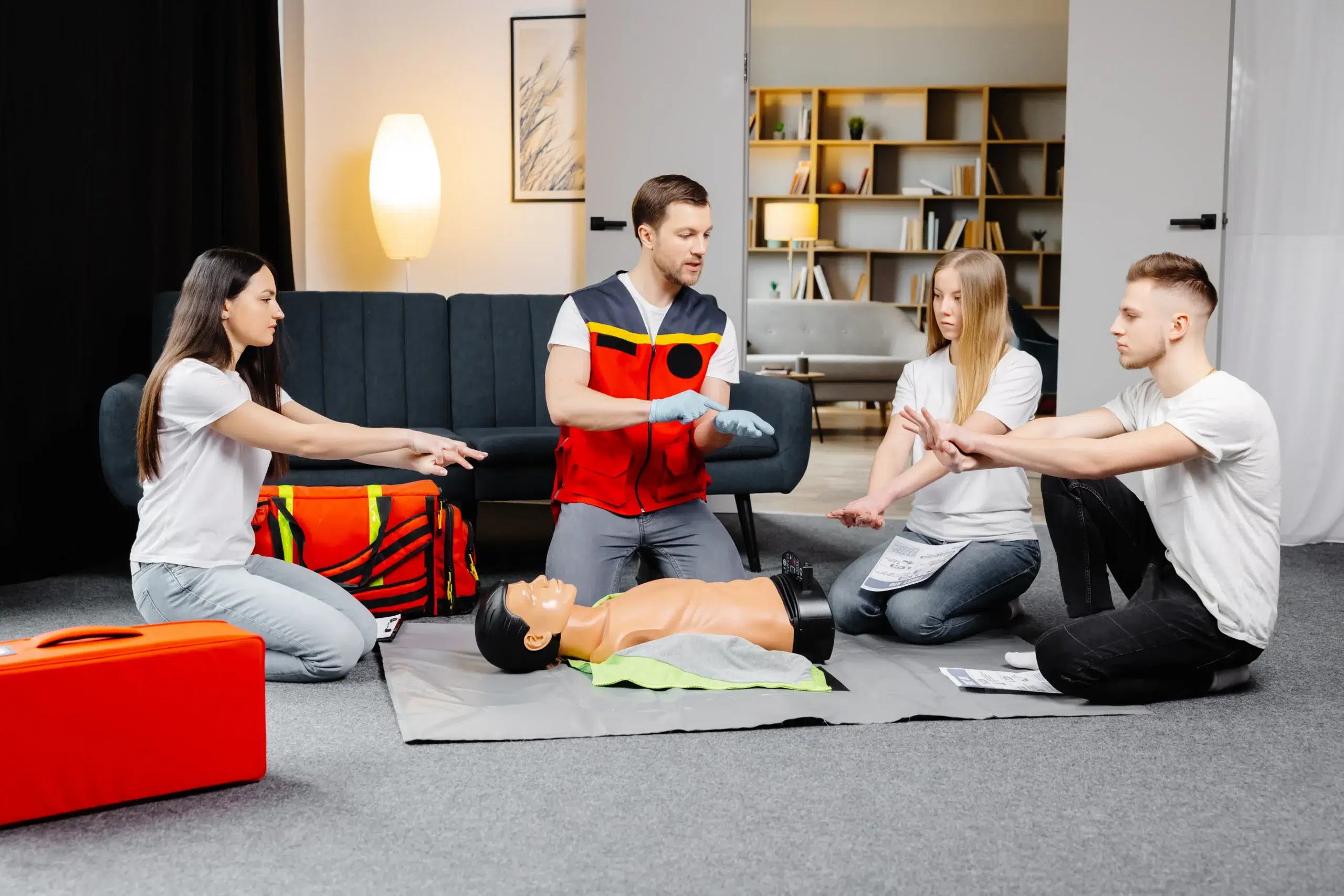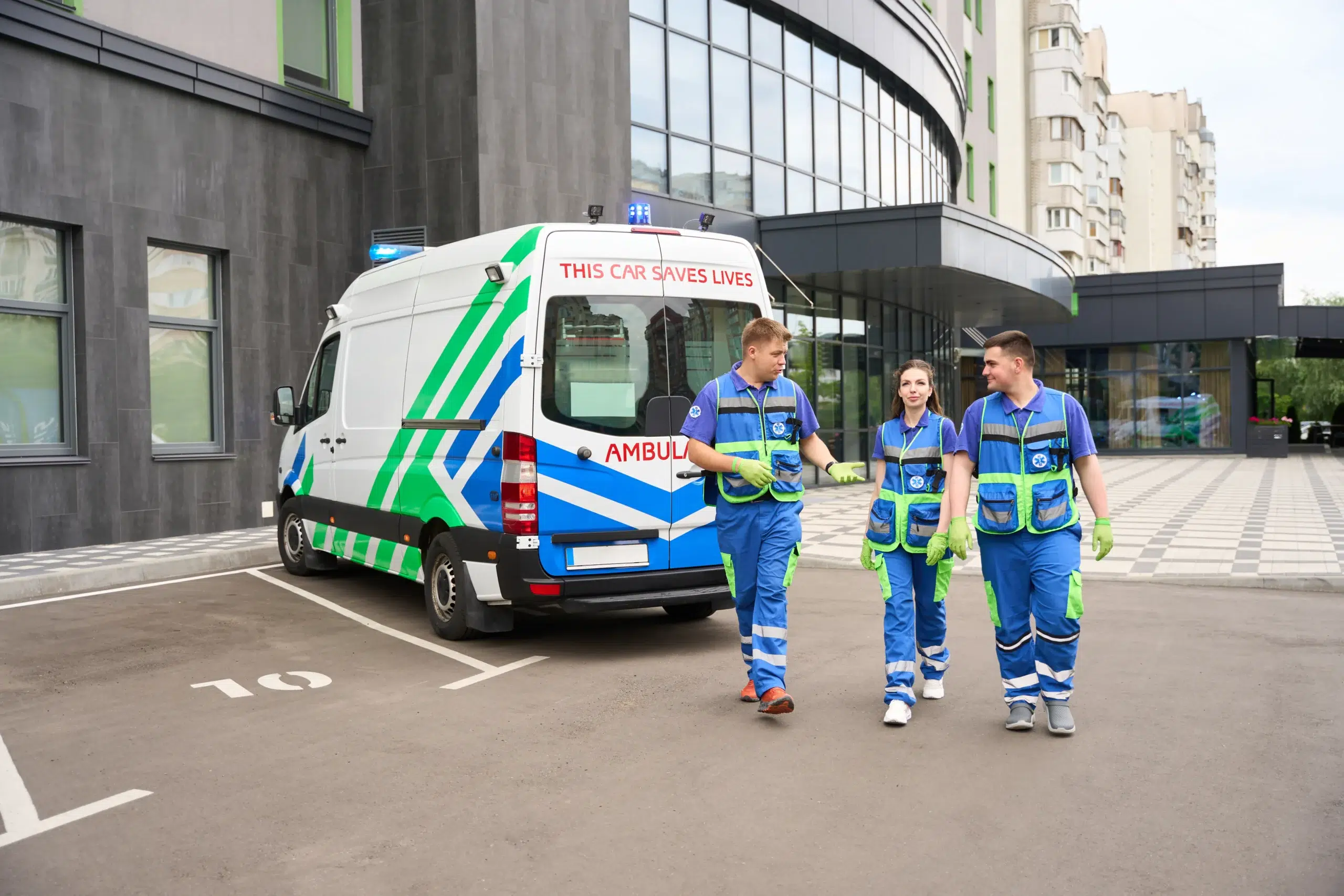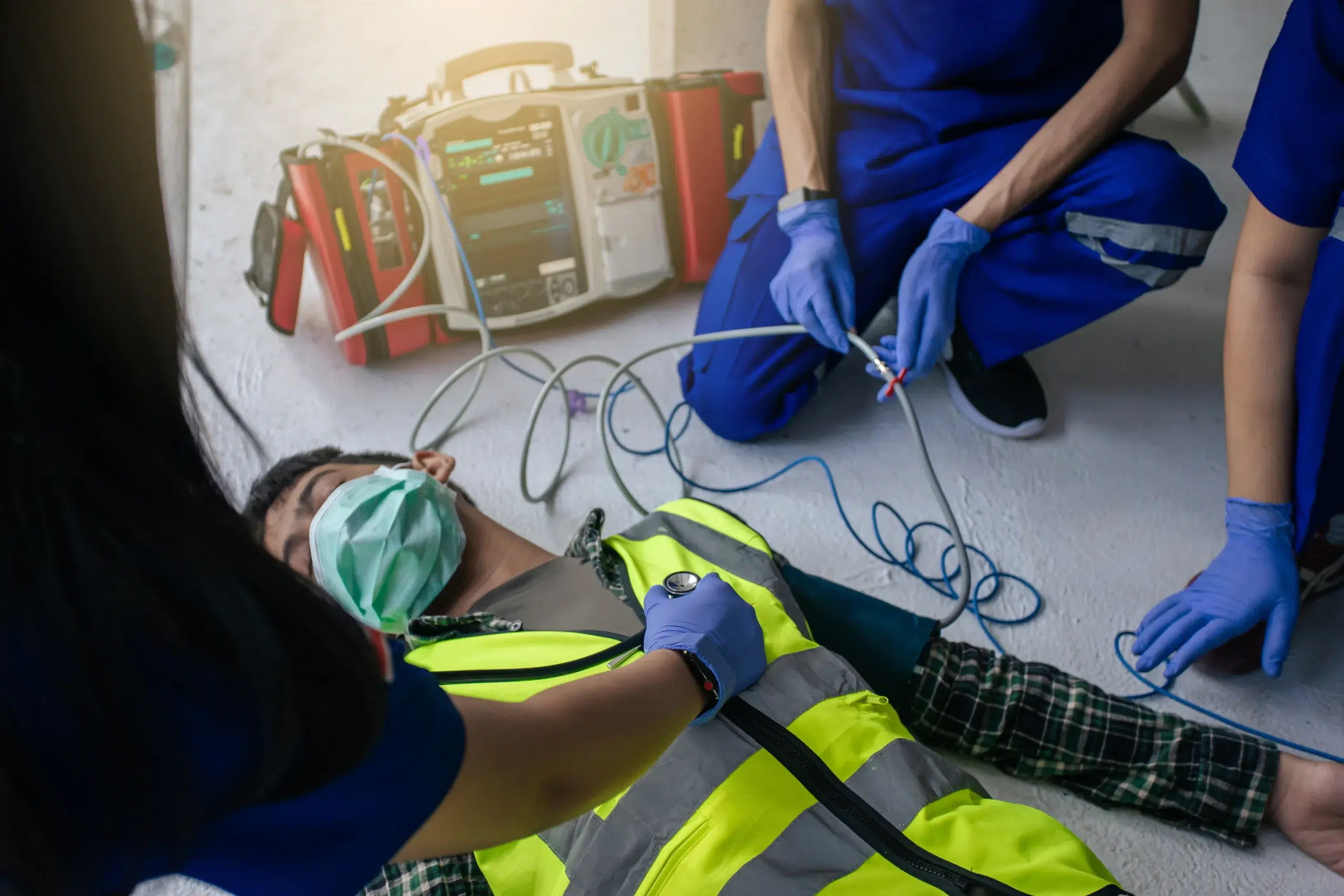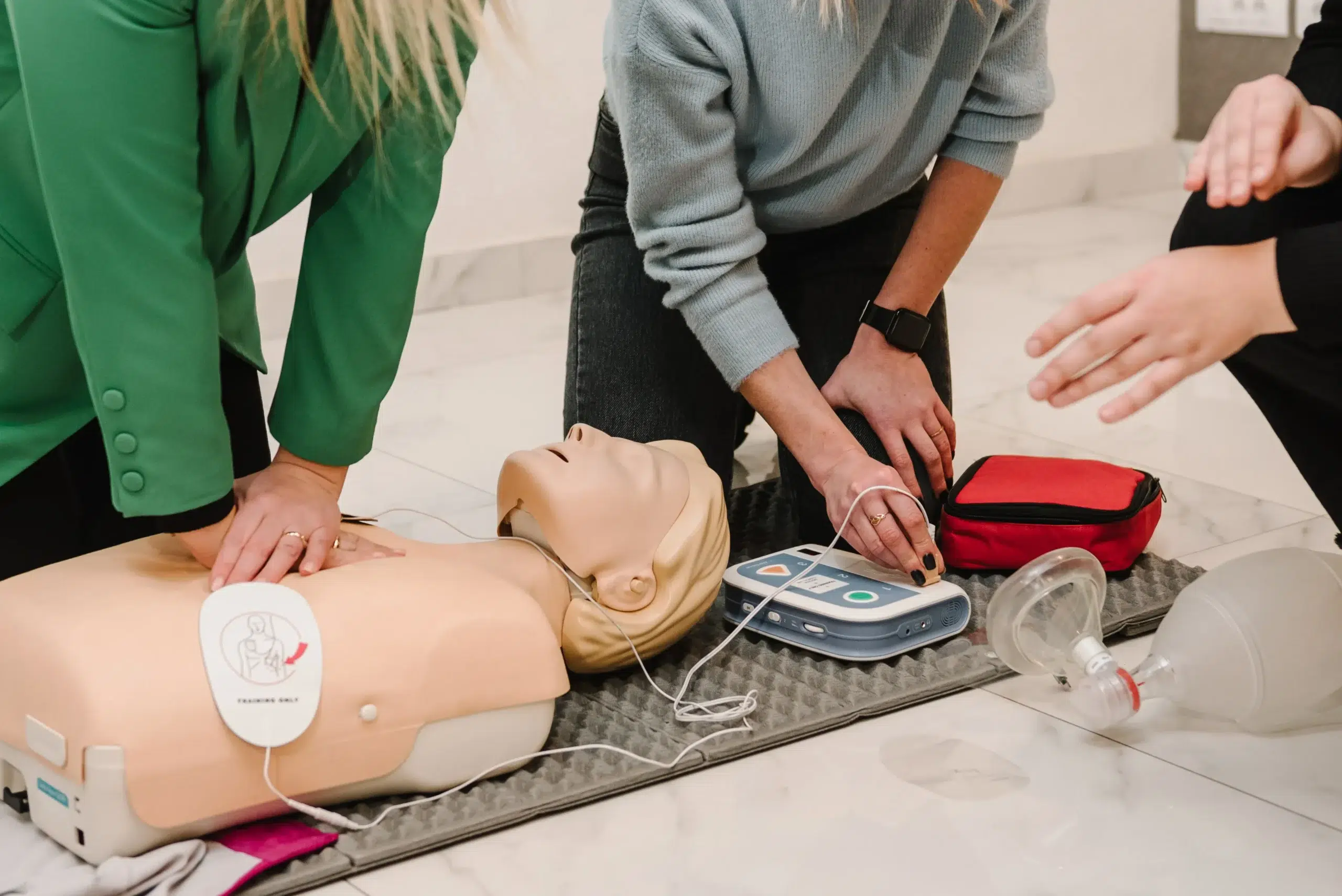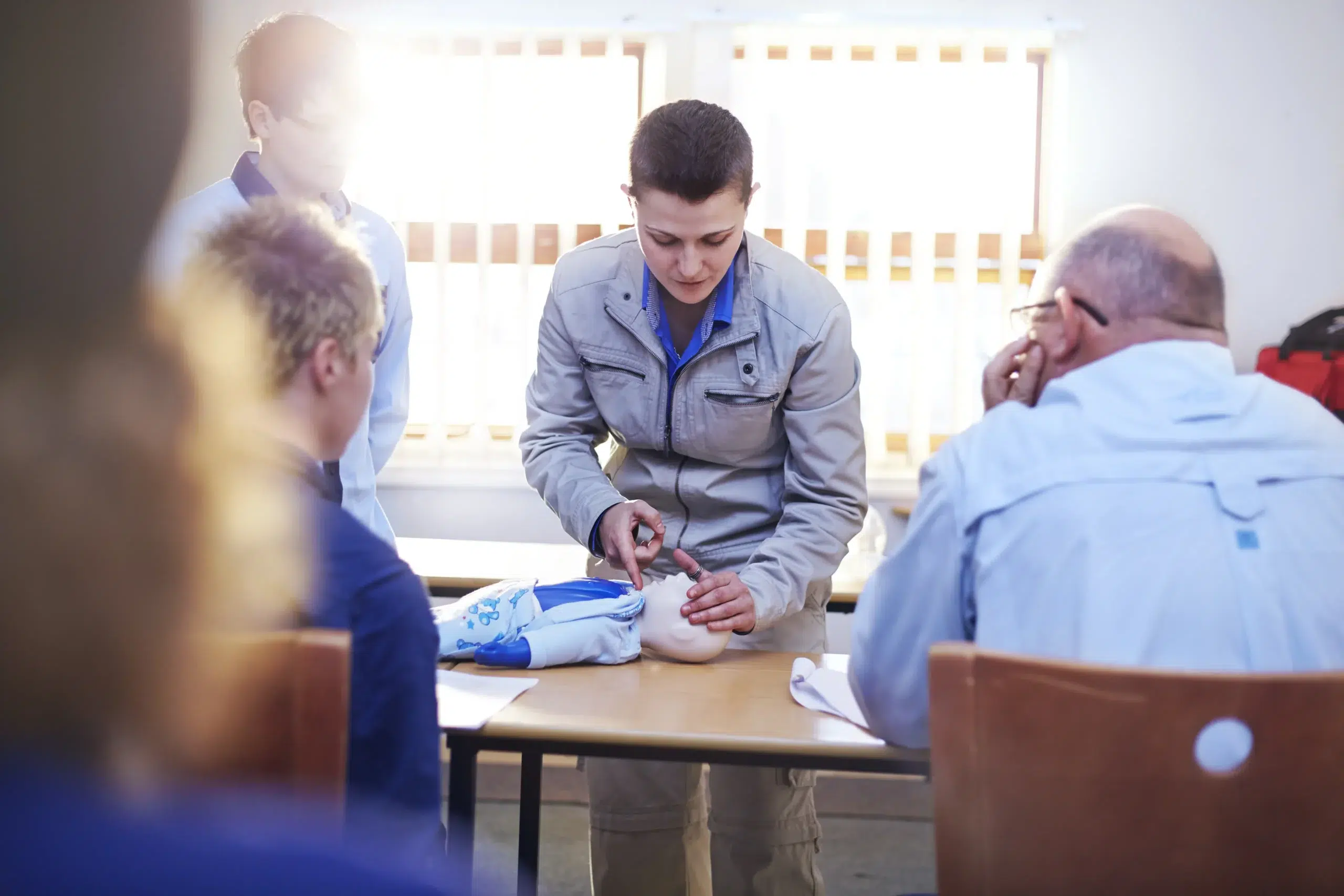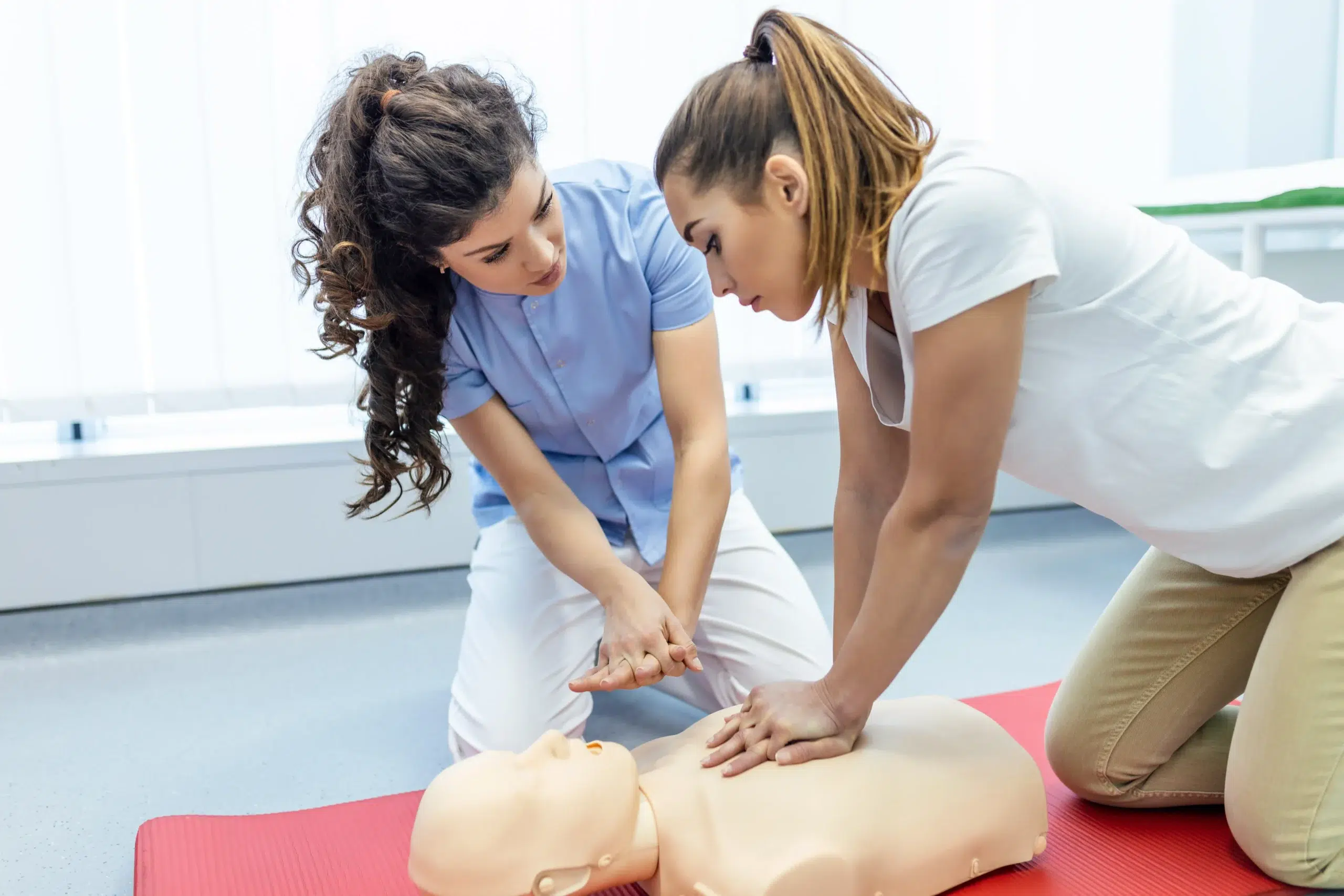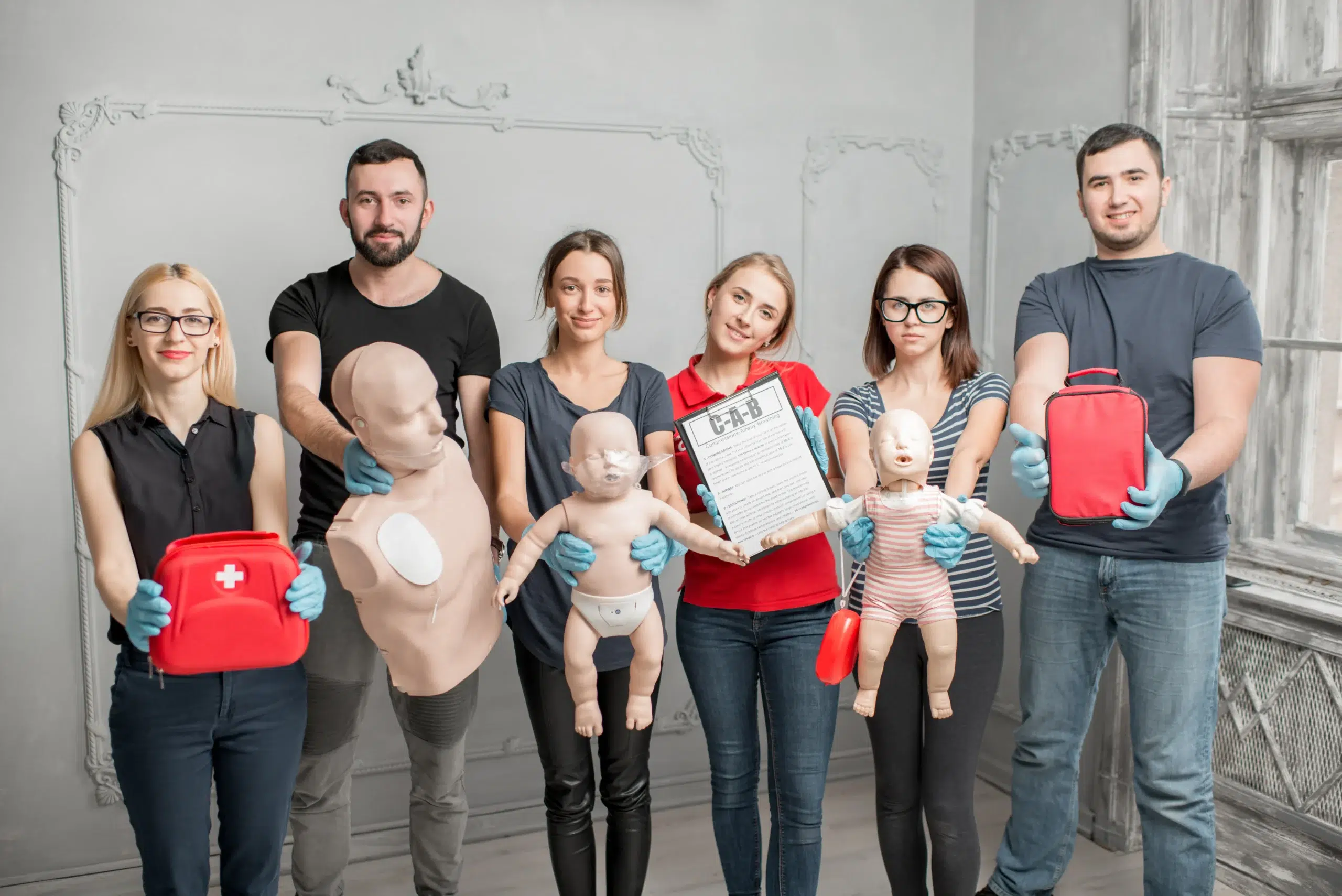Emergencies can happen anytime, anywhere. Are you ready to respond? CPR courses in Pleasant Hill provide the skills and confidence to act quickly in a crisis, potentially saving a life. Whether you’re a healthcare professional, a childcare provider, or simply someone who wants to be prepared, this guide will help you find the right CPR training. We’ll cover everything from basic CPR and first aid to advanced certifications like ACLS and PALS. We’ll also discuss the importance of AHA certification, debunk common training myths, and explore top CPR training providers in Pleasant Hill.
Key Takeaways
- Find the Right CPR Class in Pleasant Hill: From basic first aid to advanced certifications like ACLS and PALS, various courses cater to different needs and experience levels. Explore options like group discounts and flexible scheduling to find the best fit.
- CPR Skills Save Lives: Learn to recognize medical emergencies, perform chest compressions, administer rescue breaths, and use an AED. Hands-on training builds confidence and prepares you to act quickly in a crisis. Consider the efficiency of RQI programs for healthcare providers.
- Get Certified and Stay Prepared: AHA certification validates your skills and can enhance your career. Choose a reputable provider like Pleasant Hill CPR Classes, known for its comprehensive training and convenient daily classes. Remember to renew your certification to maintain your life-saving skills.
What are CPR Courses in Pleasant Hill?
CPR courses in Pleasant Hill equip you with the skills to respond to medical emergencies. Whether you’re a healthcare professional maintaining your certification or someone wanting to learn lifesaving skills, there’s a course for you. These courses blend classroom instruction with hands-on practice, ensuring you’re prepared to act quickly and confidently in a crisis.
CPR Course Types
Pleasant Hill offers a variety of CPR courses tailored to different needs. From basic CPR and first aid to advanced certifications like ACLS and PALS, you can find training to match your goals. Many providers also offer specialized courses, such as those for healthcare providers, childcare professionals, or workplace safety programs. Pleasant Hill CPR classes offer the flexibility of group discounts to make training more accessible.
Key Skills You’ll Learn
CPR courses teach essential, potentially life-saving skills. You’ll learn to recognize the signs of a heart attack, stroke, and other medical emergencies. Training includes performing chest compressions and rescue breaths, using an automated external defibrillator (AED), and providing first aid for choking, bleeding, and other injuries. The emphasis on hands-on practice helps build muscle memory and confidence, allowing you to react effectively under pressure. For healthcare professionals needing to maintain their skills, consider the efficiency of our RQI program.
AHA Certification
Many CPR courses in Pleasant Hill lead to certification from the American Heart Association (AHA). AHA certification is widely recognized, demonstrating that you’ve met rigorous training standards. This credential can be valuable for career advancement in healthcare and other fields. It also provides peace of mind knowing you have the skills to help in an emergency. Be sure to check if the course you’re considering offers AHA certification. Pleasant Hill CPR Classes offers a low price guarantee on all AHA-certified courses.
CPR Training Myths Debunked
Several myths surround CPR training. One common misconception is that CPR alone can restart a stopped heart. While CPR maintains blood flow and oxygen delivery, it buys time until professional medical help arrives. Another myth is that only healthcare professionals can perform CPR. Anyone can learn CPR and potentially save a life. Don’t let these myths prevent you from getting trained—contact us to learn more about CPR courses in Pleasant Hill.
Top Pleasant Hill CPR Training Providers
Finding the right CPR class can feel overwhelming, so we’ve compiled a list of local providers and resources to help you in your search. Each offers different learning experiences and specialties, so take a look and see which one best suits your needs.
Pleasant Hill CPR Classes
Pleasant Hill CPR Classes offers a convenient and affordable way to earn your certifications. They provide a range of American Heart Association (AHA) certified courses, including BLS, ACLS, PALS, and RQI programs, designed to meet various professional requirements. They also offer a low price guarantee. If you’re looking for comprehensive training and flexible scheduling, visit their website to explore their courses.
Safety Training Seminars
Safety Training Seminars, a woman-owned and operated AHA Training Center, provides various courses such as BLS, ACLS, PALS, CPR, and First Aid. They focus on delivering high-quality instruction and convenient scheduling, with classes available daily in Pleasant Hill and surrounding areas. Visit their website for more information on class schedules and offerings.
CPR Training Center
The CPR Training Center offers an online ACLS course using the AHA HeartCode system. While online ACLS courses offer a convenient path to certification, the AHA recommends supplementing online training with an in-person skills assessment for a more well-rounded learning experience. Explore their online ACLS course and other offerings on their website.
American CPR Care Association
The American CPR Care Association offers a convenient way to complete your CPR and First Aid training from home with their combined online courses. Read their student testimonials and explore their course options.
National CPR Foundation
The National CPR Foundation isn’t a training provider but a valuable resource for understanding the evolution of CPR training. They’ve explored alternative training methods, including blended online/in-person courses, hands-only CPR for lay rescuers, and even mobile app-based learning. Learn more about their research and recommendations by reading their article on CPR training in the United States in the AHA Journal.
Pricing, Value, and Scheduling
Finding the right CPR class often involves balancing cost, convenience, and the value you receive. Let’s break down what you should consider when evaluating CPR courses in Pleasant Hill.
Course Costs
CPR course fees vary depending on the type of certification you need (like BLS or ACLS), the course format (online or in-person), and the training provider. Contacting providers directly—such as Pleasant Hill CPR Classes—is always a smart first step for up-to-date pricing. This allows you to compare options and choose a course that fits your budget. Remember, CPR training is an investment in life-saving skills.
Group Discounts & Price Guarantees
If you’re coordinating training for a group, like coworkers or a community organization, ask about group discounts. Many CPR training centers offer reduced rates for group registrations, making training together more affordable. Pleasant Hill CPR Classes offers a low price guarantee for CPR/BLS renewal, ensuring you get the best possible value. This can be a significant advantage when budgeting for multiple certifications.
Flexible Scheduling: In-Person & Online
Balancing work, family, and other commitments can make scheduling tricky. Look for CPR training providers that offer flexible scheduling. Daily classes are common, and some providers offer weekend or evening sessions to accommodate busy schedules. The availability of online components, such as those found in the RQI program, can offer even greater flexibility, allowing you to complete portions of the coursework at your own pace. This blended learning approach often combines online modules with in-person skills sessions.
Certification & Renewal
CPR certifications are typically valid for two years. Keep track of your certification expiration date and plan for renewal ahead of time. Many training centers offer streamlined renewal courses to refresh your skills and maintain your certification. Pleasant Hill CPR Classes provides both initial certification and renewal courses for various certifications, including BLS, ACLS, and PALS. Staying current with your certification ensures you’re always prepared to respond effectively in an emergency.
Choose the Right CPR Course
So, you’re ready to learn CPR? Awesome! Choosing the right course can feel a little overwhelming with so many options, but it doesn’t have to be. Here’s a breakdown to help you find the perfect fit.
Assess Your Needs
First things first: why do you want to learn CPR? Are you a healthcare professional needing to maintain your licensure? A childcare provider? Or do you simply want to be prepared for emergencies? Pleasant Hill CPR Classes offers a range of American Heart Association (AHA) certified courses—everything from Basic Life Support (BLS) and Advanced Cardiovascular Life Support (ACLS) to CPR and First Aid—so you can find a course that aligns with your specific requirements. Knowing your “why” will guide you toward the right certification level.
Compare Providers & Features
Once you know what type of certification you need, it’s time to compare providers. Look for AHA-compliant training and understand the total cost, which might include online and in-person components. Also, check for things like discounts for group registrations or a low-price guarantee. These little perks can make a difference! Pleasant Hill CPR Classes is known for its convenient daily classes and commitment to customer service, so be sure to explore all your options.
Instructor Expertise & Training Quality
The instructor’s expertise plays a huge role in how much you get out of your training. Look for courses that emphasize hands-on learning. After all, you’ll be using a CPR training mannequin to practice chest compressions, and having an experienced instructor guide you is invaluable. This practical experience is key to building confidence and mastering the techniques. For healthcare providers seeking efficient certification, Pleasant Hill CPR Classes specializes in Resuscitation Quality Improvement (RQI) programs.
Benefits of CPR Certification
Getting CPR certified isn’t just about checking a box; it’s about empowering yourself to potentially save a life. Knowing you can handle an emergency boosts your confidence and prepares you to respond effectively under pressure. Plus, many online CPR courses now offer a flexible way to learn and get certified, making it easier than ever to acquire these essential skills. Contact Pleasant Hill CPR Classes to discuss your training needs and find the best course for you.
Enroll in a CPR Course
Now that you understand the importance of CPR certification and have explored different providers, let’s discuss how to actually enroll in a course and what to expect. Pleasant Hill CPR Classes makes it easy to get certified with convenient and affordable options. They offer a range of AHA-certified courses, including BLS, ACLS, PALS, and RQI programs designed for various professional needs.
Registration & Prerequisites
Most CPR courses don’t have formal prerequisites. You don’t need prior medical experience to enroll. The registration process is usually straightforward. Visit the Pleasant Hill CPR Classes website to browse available courses and select the one that meets your needs. You’ll then complete a registration form and pay the course fee. Some providers may require you to create an account to access course materials and track your progress.
Prepare for Your Training
Once registered, you’ll receive information about preparing for your training. This might include reviewing the course manual, watching introductory videos, or completing online modules. For blended learning courses like ACLS HeartCode, you’ll work through online content at your own pace before attending an in-person skills session. This flexible format helps you absorb the information thoroughly and practice essential skills with a certified instructor.
What to Expect
A typical CPR course involves both classroom instruction and hands-on practice. You’ll learn the steps of CPR, how to use an AED, and how to recognize the signs of a heart attack or stroke. Expect to participate actively in demonstrations and practice scenarios. Many courses, including online options, culminate in a certification exam, which typically involves a written component and a practical skills test. Successfully completing the exam earns you your CPR certification.
Apply Your New Skills
CPR certification empowers you to respond confidently in emergencies. While hopefully you’ll never need to use your skills, knowing how to perform CPR can make a life-saving difference. Consider how your new skills apply to your personal and professional life. Whether you’re a healthcare professional, a childcare provider, or simply someone who wants to be prepared, CPR training provides valuable knowledge and peace of mind. The AHA emphasizes the importance of CPR training to improve survival rates from cardiac arrest.
Related Articles
- CPR Certification in Pleasant Hill: A Complete Guide
- Debunking Common CPR Myths for Lifesaving Confidence
- AHA Walnut Creek: Your Guide to CPR Certification – Pleasant Hill CPR Classes
- Why CPR is Vital for Healthcare and Public Safety
- CPR Training in Pleasant Hill: Your Complete Guide – Pleasant Hill CPR Classes
Frequently Asked Questions
How do I choose the right CPR course for me? Think about why you need CPR training. Are you a healthcare provider, a childcare worker, or just someone who wants to be prepared? Your reason for taking the course will help you determine the right certification level (like BLS, ACLS, or CPR/First Aid). Then, compare different training providers, look at their course features, and consider things like cost, schedule flexibility, and instructor experience.
What does CPR certification entail? CPR certification involves completing a training course that covers essential life-saving skills, such as recognizing medical emergencies, performing CPR and using an AED, and providing basic first aid. Most courses include both classroom learning and hands-on practice, often using mannequins for realistic simulations. You’ll typically need to pass a written and practical exam to receive your certification, which is usually valid for two years.
Are online CPR courses as effective as in-person classes? Online CPR courses offer a convenient way to learn the material at your own pace, but they often need to be combined with an in-person skills session for hands-on practice with a certified instructor. This blended approach allows you to study the theory online and then develop your practical skills in a real-world setting. For healthcare professionals, programs like RQI offer a flexible way to maintain certification through online modules and skills validation.
How much does a CPR course cost, and are discounts available? CPR course costs vary based on the certification level, the course format (online or in-person), and the training provider. It’s always best to contact providers directly for the most up-to-date pricing information. Many providers offer discounts for group registrations, so if you’re training with colleagues or a community group, be sure to ask. Some providers, like Pleasant Hill CPR Classes, also offer a low-price guarantee.
What if I need to renew my CPR certification? CPR certifications are typically valid for two years. Most training centers offer renewal courses that allow you to refresh your skills and update your certification. These renewal courses are often shorter than the initial certification course and focus on key skills and updates to guidelines. Contact your original training provider or another certified center to find a renewal course that fits your schedule.
